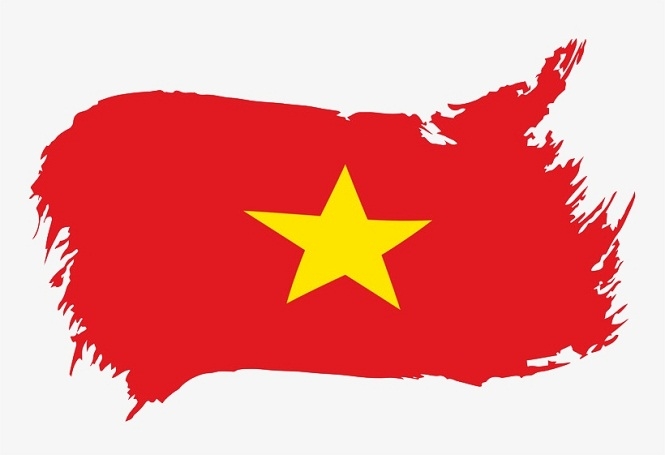Vietnam Elects Leaders
| Date :20-Apr-2021 |

By AMIAD HOROWITZ :
Despite the often-repeated neoliberal slander that claims Vietnam is some sort of dictatorship, Vietnam is in fact a socialist republic. As per the constitution of Vietnam, the country’s top leaders—the President, the Prime Minister, and the chairperson of the National Assembly—are elected by the members of the Assembly.
VIETNAM has elected a new Government, and although many Americans might not pay much attention to Vietnamese politics, there are significant reasons for them to do so—especially now. With one of the fastest growing economies in the world, Vietnam has become an important trade partner with the United States, reason enough to give it consideration. But secondly, the country’s internationally recognised success in containing the COVID-19 pandemic offers many lessons on what a socialist-oriented economy can achieve when people are prioritised over capital. Despite the often-repeated neoliberal slander that claims Vietnam is some sort of dictatorship, Vietnam is in fact a socialist republic.
As per the constitution of Vietnam, the country’s top leaders—the President, the Prime Minister, and the chairperson of the National Assembly—are elected by the members of the Assembly. It serves as Vietnam’s legislative branch, with its members elected by the citizens of Vietnam. In sharp contrast to the current trend in the U.S., which has seen State Governments actively trying to suppress democracy, the leaders of Vietnam often talk about the need to expand democracy, and access to voting is universal and easily accessible. Outgoing Prime Minister Nguyn Xuân Phúc has now been elected as President. Phúc has a long history of public service and has been hailed for his administration’s leadership and effectiveness in fighting the pandemic. This was accomplished through quick action and the early decision that containing the virus and minimising the number of people infected was the number one priority. While the capitalist Governments of the U.S. and Europe often waffled between caring about keeping infection numbers down and the needs of big business, leaving them paralysed and ineffective, Phúc’s administration put people first and the results speak for themselves.
At the time of this article, Vietnam has only seen 2,637 cases of the virus—in total—and suffered 35 deaths, all while maintaining Vietnam’s economic growth. Phúc has some large shoes to fill, as his predecessor, Nguyn Phú Trng, was seen as very accomplished and was just elected to an unprecedented third term as General Secretary of the Communist Party of Vietnam. In his opening remarks to the National Assembly, Phúc promised to continue the work of his predecessor, focused on improving the efficiency of the Government, cutting waste, and fighting corruption. He has been replaced in the Prime Minister’s seat by Minh Chính, who has served in local Government administration, the military, and State security, and most recently as chair of the Communist Party of Vietnam’s Organisation Commission. Over the last couple of decades, Vietnam’s economy has been one of the fastest growing in the world. Thanks to Vietnam’s socialist-oriented market economy, the Government has been able to direct the expansion of the economy in a manner that best serves the people and the needs of the country. Much of the economic focus has been on developing a strong manufacturing and agricultural base, which has provided jobs for people and allowed Vietnam to play a more prominent role in the global economy.
This was paired with large investments in modern infrastructure, such as new highways, airports, and bridges. Now the focus is shifting towards the digitalisation of the economy so that both business and Governmental work can be done more efficiently. In his opening remarks to the National Assembly, Chính promised to continue focusing on economic development and improving infrastructure for the country, while also stepping up the national digital transformation. Heading up the National Assembly as its new chairperson is Vuong Ðình Hu, who has economic credentials, including having formerly been a professor and Minister of Finance. Many world leaders, from Russia to Cambodia called the members of Vietnam’s new Government to offer their congratulations. Notably, the leaders of the two other Socialist countries bordering Vietnam, President Xi Jinping of China and President Thounglon Sisolith of Laos both spoke about continuing to work together for the betterment of all their peoples.
Sisolith spoke about how he expects great things from Vietnam’s new Government. Laotian Prime Minister Phankham Viphavanh also called his new Vietnamese counterpart and said he looks forward to the two nations working together to benefit both their peoples and to work towards regional peace, cooperation, and continued development. Despite the mainstream media’s attempts to paint China and Vietnam as bitter enemies, China’s President Xi noted that he puts great importance on a good Chinese-Vietnamese relationship as both countries are in critical stages of their building of socialism, a common goal. Chinese Premier Li Keqiang also added in his congratulatory message to Prime Minister Chính that he seeks good neighbourly relations between the two countries in which both governments can work together for the mutual benefit of both States and their people. (IPA) (Courtesy: People’s World)